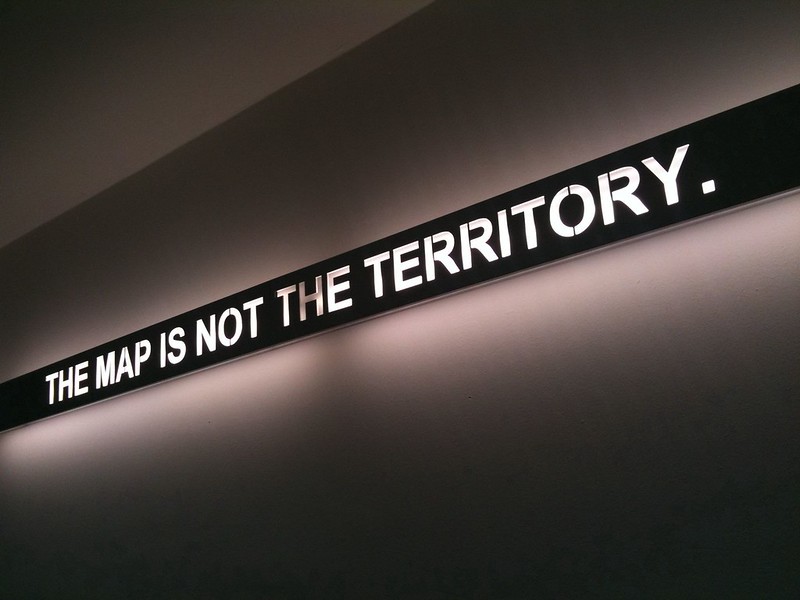Methodological Agnosticism, Cultural Deprogramming & Chaos Magick
My first gateway to reality shifting was the study of Comparative Religion.
I experienced this field of study as a proper mindfuck. A proper mindfuck can expand our way we see the world, once we have rearranged our maps after they shatter.
The first semester with Prof. Dr. Ahn in Heidelberg was such a map shattering experience. All of my synchretistic neat construct of worldview fell apart midway through this class. He actually wanted to cause this effect, he had set his mind to filtering out all the New Age kids from his Institute.
My perception was forever expanded by what my professor was teaching, followed by an unavoidable existential crisis, a conversion to a fervent postmodernist atheist and eventually surfing into the shores of Chaos Magick as a meta paradigm to play with my world.
Under his instruction, we practiced methodological agnosticism, which required us to look at all religious or spiritual phenomena in a more neutral manner without judging the claim of truth in our object of study. This meant adopting a mental stance of “just not knowing” when it comes to the reality descriptions and experiences of religious or spiritual subjects. Not knowing what is true, or having any definitive answers to questions big or small. Not only not knowing, but also being OK with not knowing, and getting close and comfortable with uncertainty on the question of any “Ultimate Truth”. We rather focused on understanding how the different narratives and maps evolved and what use or benefit they had for the user.
If I was going to interview a Buddhist, for example, I would be curious and ask questions to obtain their narrative about their view on the world. I would abstain from any kind of judgement about claims of metaphysical truth, but remain comfortable with the not knowing. I would meet the narratives of their belief system with curiosity about what they believe in, without trying to pass it through any lenses, filters, or trying to arrive at a “true or false” conclusion. Not an easy training.

We also practiced detaching from our cultural programming, which informs how we see the world and how we interact with other people. This programming is usually grounded in some form of a moral code, transmitted by religious authorities and cultural institutions. The dichotomy of good and evil for example, is usually present in the Christo-centric world maps, however can also be found in Persian world maps and to some extent in Judaism and Islam.
Looking at Hindu traditions for example, the gods and deities there are not strictly following this dichotomy. They all have different functions, relationships and domains. This would inform a different cultural programming which would not include the same kind of duality as in Christo-centric beliefs. An atheist environment, to offer another example, might inform a judgmental approach towards religion or spirituality altogether, and it may take some effort for someone who grew up in such an environment to detach from these sorts of judgments and open themselves for the variety of experiences in so called spiritual phenomena.
This practice was incredibly eye opening. We discovered the possibility of understanding a cultural paradigm operating on completely different semantic and epistemic contextes. What was once not even noticed, or if noticed, considered as “other”, different or misunderstood – we gained the capacity to see plainly and without projecting our own interpretations.
Epistemology describes our access to gaining knowledge about the world and cosmos, different cultures run on different epistemological grids and use a complex symbol system of language to construct meaning. This is why Western philosophies and Eastern philosophies have very different ways of understanding world and reality, and therefore construct very different maps to navigate reality.
To be digging into someone’s epistemological context, would mean to invest in deeply understanding the core philosophies and categories behind their worldview. It’s a really complex field of study and understanding, and it can be totally mind blowing! My own understanding was opened towards just how different experiences of life can be had on this planet, depending on the map we use to make sense of it.

When we change our paradigm, we start operating with a completely different map which results in a different gameworld experience. In order to stop using our culturally programmed templates and maps, the first step is to study them and see how they are built and how they operate, how profoundly they influence our judgements, choices, preferences and values.
Realizing the extent of the influence cultural programming had had on my thoughts and perceptions, I experienced quite the existential crisis. My previous view and mapping of my world were all starting to break down. Nothing was making sense anymore, as all the maps I had been navigating with had ceased to work. But it also made my mind way more flexible and attuned to different people and their world view. This experience had offered me a sustained, non judgemental curiosity, and an awareness to the multiplicity of reality tunnels in which different people experience the world through.
These studies and practices have also informed my access to the practice of Chaos Magick, in made it easier to adopt the set of beliefs necessary for any given ritual while not sticking to any one paradigm in a dogmatic manner. The magick works when you allow the belief or paradigm you are using to be true, perform the ritual, and then forget about it.
I approached this field of study with amusement for the epistemological mindfuck rather than really diving deep into different religions, cultures and contexts. This trained my mind in the flexibility required to shift paradigms at will and play with it.
There’s of course much more to practicing Chaos Magick – the field is both incredibly complex and profoundly simple. At the core of this approach to illumination lies the simple and complex idea that nothing is true, and everything is permitted.
A good mindfuck helps us to break up our acquired dogmas and thinking patterns. Illumination by mindfuck so to speak. We can find different ways to receive proper mindfucks, discordianism I find the funniest one. When we detach from claims of ontological truths, we open ourselves to play with multiple possibilities and free ourselves from culturally transmitted moral judgments. This of course requires us to find our very own ethical compass to align our life decisions with and reconstruct our maps, if we do not want to get lost in a sea of Chaos.